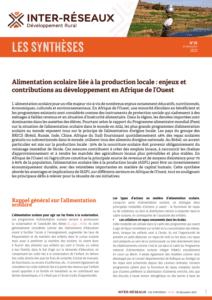The Framework for Gender-Responsive Livestock Development was developed by the International Livestock Research Institute (ILRI), the Food and Agriculture Organization of the United Nations (FAO), the World Bank and the International Fund for Agricultural Development (IFAD), with the aim of supporting the planning and implementation of gender-responsive policies, projects and investments related to the development of the livestock sector. It provides an overarching framework to support the formulation of action plans and guidance documents contributing to gender equality and women’s empowerment through livestock development.
Livestock support the livelihoods of 1.3 billion people worldwide and provide nutritious diets essential in low- and middle-income countries. Gender dynamics affect the ways in which the livestock sector contributes to sustaining livelihoods. Women comprise most poor livestock keepers in low- and middle-income countries, and are less represented in scaled-up production enterprises and other income-earning livestock-related activities. They also have limited access to livestock information, input and output services, as compared to their male counterparts. When production scales up, often as a result of investments or government policies to develop value chains, women can bear the brunt of increased workload and be pushed out of the accrued benefits. Such gender-based disadvantage is not only hindering the development of the livestock sector, but is also widening the gender gap. In this context, empowering women and girls is essential for both the sustainable development of the livestock sector, and for achieving gender equality. These in turn are key for building a world free from hunger, malnutrition and poverty, with resilient livelihoods for everyone.







